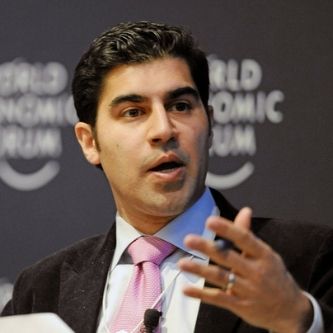
At Globalization Partners' recent three-day global employment conference PANGEO, best-selling author Dr Parag Khanna outlined the dynamics at play in the New Global War for Talent. HRD's Maria Hoyle reports

This article was produced in partnership with Globalization Partners.
In his book Move, leading global strategy adviser Dr Parag Khanna coins an axiom: Mobility is Destiny.
Today’s young people “determine the winners and losers of the future. It is as physically simple as that. Follow young people as they vote with their feet,” Dr Khanna told the recent Globalization Partners’ PANGEO conference, where he shared thoughts both from Move and his research into youth, mobility, talent, skills and globalization.
The geographic patterns of the past 30 years – where migration within regions dominated – are changing. The world’s under40-year-olds are more mobile than any generation in history. Coinciding with globalization and the increased freedom of mobility is the fact that the two things that often tether people to one place – owning a home and having children – are the two things that least characterize all of today’s young people.
“If you want to understand the future, you must see it through the eyes of today’s youth,” said Dr Khanna. “We have to adapt our world, businesses, systems, and our corporate culture to their preferences, needs and priorities.”
For business to succeed post-pandemic, it must be aware of where and why young talent moves, and be connected to it.
“Connectivity and mobility are two sides of the same coin. That is the underlying relationship we should never forget,” he said.
“Around half of the world’s 8BN population is able to be mobile. Of these, almost all are young. Sixty percent of the world is in the Asia Pacific region. Which means we shouldn’t view the world economy’s future as hinging purely on what happens with the US fiscal stimulus or the Eurozone rescue package,” said Dr Khanna. “Look at demographics in youth, urbanization, pace of digitization and other factors that are organic drivers of growth, and it’s clear the momentum is with Asia.”
“The world is becoming a truly distributed multi-polar system. That means opportunities for east and west. It’s not biggest who wins; it’s who is the most connected. Part of what will drive Asia’s growth, and what will drive America’s and Europe’s recovery, is connectivity to Asia, to talent in Asia and vice versa,” Dr Khanna commented.
True, our borders are locked down. But the fundamental drivers to human mobility are in overdrive. These are: demographic imbalances within countries and across them creating labour shortages that need to be filled and a tax base that needs to be replenished; political upheavals; economic dislocation following financial crises; climate change; and tech disruption (this cuts both ways - automation of labour drives workers away from factory towns but remote work gives people new choices about where they want to live).
“If you multiply all that by the volume of connectivity we have built, you get the accelerated mobility, physical and digital, that I am predicting for the future,” said Dr Khanna.
With a global drop in fertility and a mobile cohort of several billion young people, countries are realizing they must attract youth to have the innovators, entrepreneurs, investors – and even basic tax and rent payers they increasingly need in their region.
“This phase of the war for talent is so much more global and complex than in any previous era.” It’s not just companies vying with companies, but countries competing to attract the young. This means the war for talent has to be a “strategic priority for all companies”. Being cloud-first is crucial as all levels of worker become completely remote.
Dr Khanna quoted Simon Kuper of the Financial Times, who said: “If you can do your job anywhere, someone anywhere can do your job.” There’s a challenge to employers to offer employees the best conditions because there could be better offers out there; and there’s a challenge to employees who face competition from people just about everywhere.
Most exciting is the prospect of passports as apps – where data like vaccine certificates, criminal history and medical records can be placed onto a blockchain to be selectively shared with a consular office.
Dr Khanna concluded: “I see a bright future for us to leapfrog beyond the antiquated system we have. That will unlock the mobility that young people want and that governments know they need to offer in this war for global talent.”

Dr Parag Khanna
Dr Parag Khanna is a leading global strategy adviser, bestselling author, and was named one of Esquire’s 75 Most Influential People of the 21st Century. The founder and managing partner of FutureMap – a data and scenario-based strategic advisory firm - Dr Khanna holds a PhD from the London School of Economics. He also has Bachelors and Masters degrees from the School of Foreign Service at Georgetown University. His latest book is Move: The Forces Uprooting Us.
Globalization Partners
Globalization Partners is the world’s leading AI driven, fully compliant, global employment platform which allows companies to hire anyone, anywhere, quickly and easily. It simplifies and automates: entity access, payroll, time and expense management, benefits, data and reporting, performance management, employee status changes, locally compliant contract generation, and more.